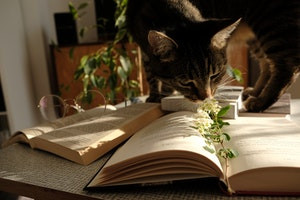
- Details
- Hits: 2048
I don’t talk too much about the time when I was submitting query letters, synopsis and sample chapters to agents. I don’t tend to look backwards. I’m not going in that direction. What I do is I keep my eyes focused ahead of me. That’s not to say I don’t learn from my past mistakes. I do. Then, I move forward with that knowledge and experience. I also weigh every decision very carefully. I weigh the pros and cons, and I make the best decision according to all the available information. Making the decision to query was no different. I weighed the pros and cons of self-pub against trad pub and decided the risk was worth it. If I got into trad pub, I would have the experience of agents, editors and publishers behind me, and I would be able to learn from them. I figured it was worth the few months to a year to give it a shot. I send my first query letter on 12/11/2016. I sent my last query letter on 1/29/2018.
Read more: My Submission Process Story - A Harrowing Warning

- Details
- Hits: 12648
As an independently published author, you have the ability to publish your works of fiction and nonfiction on many different publishing sites. The most common site is Amazon, using Amazon KDP. This gives you the ability to publish ebooks and print books at your convenience, locate a plethora of readers and monitor your sales virtually in nearly real-time. However, Amazon KDP’s sales reporting can appear to be inaccurate at times. In this article, I’m going to explain the common reasons your KDP sales may appear to be wrong.
No One Has Purchased Any Version of Your Book
The main reason authors see zero sales is obvious, even if it is unbelievable and incredibly disheartening. No one has purchased any of your online books or print books or flipped any pages, if your book happens to be part of the Kindle Unlimited program. This reason is incredibly discouraging, especially if your social media book posts are getting interest, and individuals have expressed an interest in purchasing your latest work of fiction. The hard truth is that until they click the Buy Button, there won’t be any sales, no matter how eager your audience seems to be to purchase and read it.
Read more: Understanding Why Your Sales on Amazon KDP Don't Match What You Think They Should Be

- Details
- Hits: 7305
Everyone and their mother’s brother’s sister’s uncle wants you to buy their author services. This could be editing, formatting, layout cover design, social media help and book advertising and promotion services. If you have a rich benefactor, thousands of extra dollars or one of those black credit cards with no limit, fantastic. You can buy all this stuff and not care. For the rest of us, we have to think about what’s in our bank accounts, what bills need paid and if we have an extra dollar to our names. So, let’s talk about how much it costs in books to purchase certain services. The Editorial Freelancers Association lists the prices of editing services.
Read more: Buying Services According to Book Sales - To Stay in the Green as an Author

- Details
- Hits: 9339
(In a Word Processor. This assumes you will have your original cover from your Amazon Book that you can easily adjust to fit the dimensions)
Do you want to create your own paperback cover or hardback cover for a book published through Barnes and Noble Press? You can do this with your favorite word processor such as Microsoft Word or OpenOffice Writer. If you use Microsoft Word, Barnes and Noble Press has some templates to help you get started. Here is a quick guide with how to create a paperback cover for Barnes and Noble on your own PC or Mac.
Read more: How to Create a Paperback Cover or Hardback Cover for Barnes and Noble Press

- Details
- Hits: 7196
If you’re an author that’s just finished their book, you might be thinking about sending query letters to agents in an effort to gain representation so that you can traditionally publish your book and have it appear in bookstores. If you’ve never queried before, you might feel a little overwhelmed. Here is a step by step guide to querying agents.






